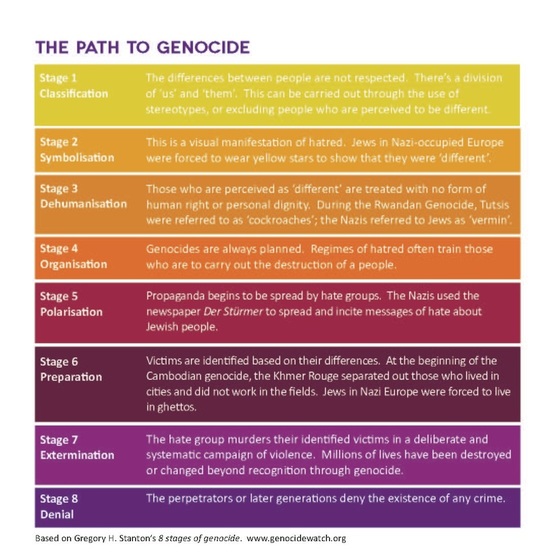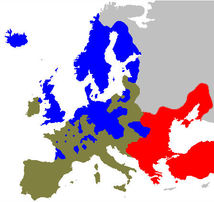Whereas the western intellectual tradition has tended to look at the question "why is there something rather than nothing" and come up with answers that involve proposing that there must be an utterly different being to the universe to explain the existence of the universe (from thinkers such as Aquinas, Al-Kindi and Liebnitz) the Hindu tradition sees this issue in a rather different way. Rather than what happened in the west Hinduism was less interested in giving a complete explanation (of the kind Copleston is accused by Russell of trying to produce) but is happy to leave many of the questions open and unanswered.
Monotheism in the West leads to a belief in a God that must be the creator of all "Ex Nihilo" - out of nothing. This is arguably logical for an Omnipotent being, and as a result this style of creation God is omniscient as he is the creator of all. But by contrast the Hindu tradition is Polytheistic and so the gods are generally part of created order and instead of creating "Ex Nihilo" they create from themselves - "Ex Deo". So it is that the the Hindu myths have the gods creating the world out of themselves - they make a great egg or a primordial being who becomes the world. One might argue that his in many ways fits much better with our experience of the world and therefore is more coherent reasoning (after all we have never observed anything that creates out of nothing - but rather we always see things being created out of something).
Of course this doesn't pass muster for thinkers such as Libnitz and Coppleston who want a sufficient reason and suggest that a cause within the universe is not a sufficient reason at all. However the Hindu approach fits with Russell's conclusion that one cannot expect to come to a sufficient reason and the universe should simply be accepted as a "brute fact". Whilst this not be very acceptable and satisfying to our minds, one might concede this is as good as it gets. Indeed this programme shows how in different cultures, such as Hindu culture, there is not such a strong intellectual desire for a sufficient explanation. People are happy to simply ponder the mystery without necessarily hoping for an answer. It might not be as satisfactory, but it might be more realistic?
Listen to the pod-cast here:




















 RSS Feed
RSS Feed
